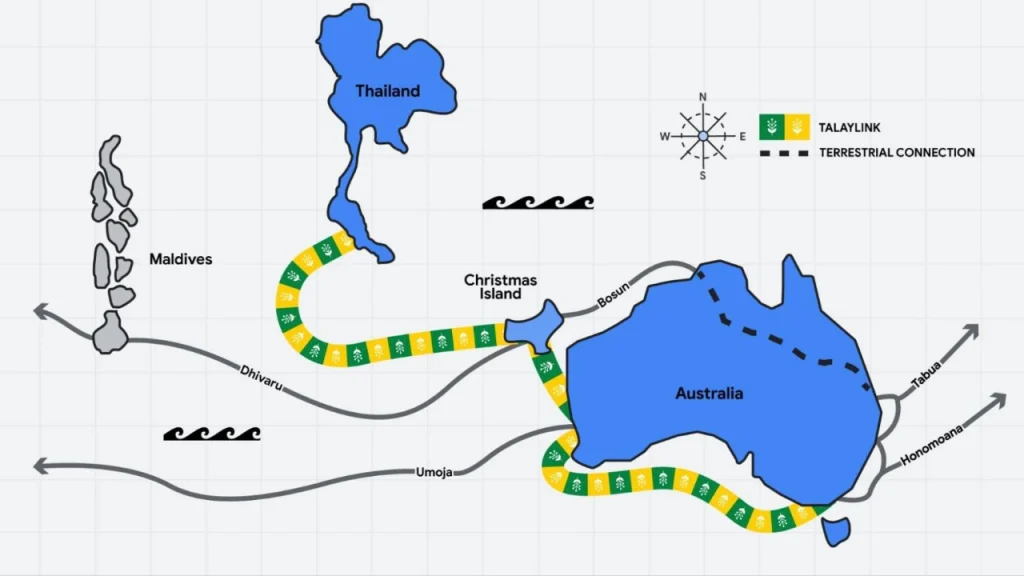- TalayLink subsea cable will connect Australia and Thailand, offering a new, more resilient routing path and supporting the development of digital services and AI innovation in Southeast Asia.
- New connectivity hubs in Western Australia and southern Thailand will enhance regional digital infrastructure, ensuring future-proof capabilities for cloud services, content caching, and colocation.
What happened: New subsea cable connects Australia and Thailand to boost digital connectivity
Google has announced the launch of TalayLink, a new subsea cable connecting Australia and Thailand, designed to bolster digital connectivity in the Asia-Pacific region. Named after the Thai word for “sea” (talay), the cable is an extension of the Australia Connect initiative announced last year. TalayLink will provide a new and diverse routing path to Thailand via the Indian Ocean, bypassing existing cables that currently pass through the Sunda Strait. This new route ensures more resilient and reliable connectivity between the two countries.
The project also includes the development of connectivity hubs in Mandurah, Western Australia, and southern Thailand. These hubs will support advanced digital services, including AI, through cable switching, content caching, and colocation capabilities. The Mandurah hub will act as a new, diverse landing point in Western Australia, which is a major subsea cable landing region. Meanwhile, the Thai hub will benefit from a partnership with AIS, a leading local colocation provider, helping accelerate deployment and leveraging existing infrastructure.
Also Read: Nvidia invests $1B in Nokia for AI-driven 5G and 6G networks
Also Read: 5G standalone adoption gains traction
Why it’s important
TalayLink is a key piece of digital infrastructure that will enhance Thailand’s connectivity and resilience. The new subsea cable will work in tandem with Google’s planned Google Cloud region and data centre in Thailand, increasing the country’s network and computing capacity. The investment is expected to support the development of Thailand’s digital economy and provide a solid foundation for the country’s AI and digital inclusion strategies.
The project also highlights Google’s commitment to strengthening digital networks across Southeast Asia, Australia, and beyond. The collaboration with AIS and ALT Telecom’s IGC subsidiary will ensure the region is equipped to handle the growing demand for cloud and AI services, aligning with both the Thai government’s economic transformation goals and Western Australia’s digital future strategy.

